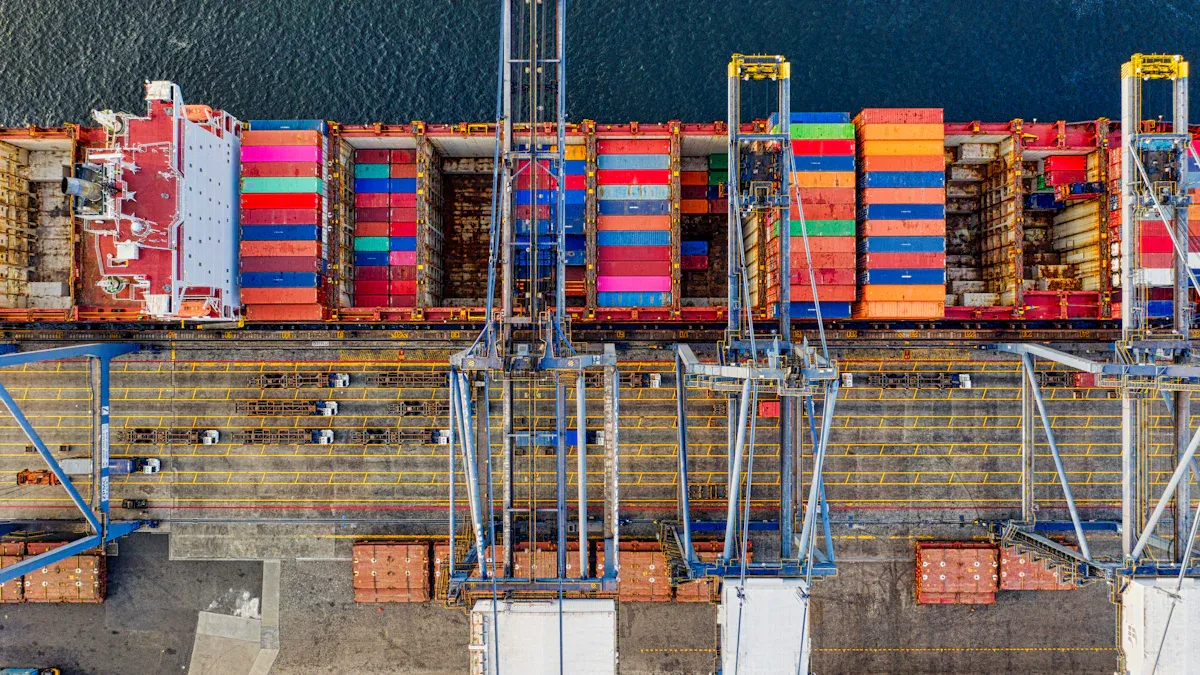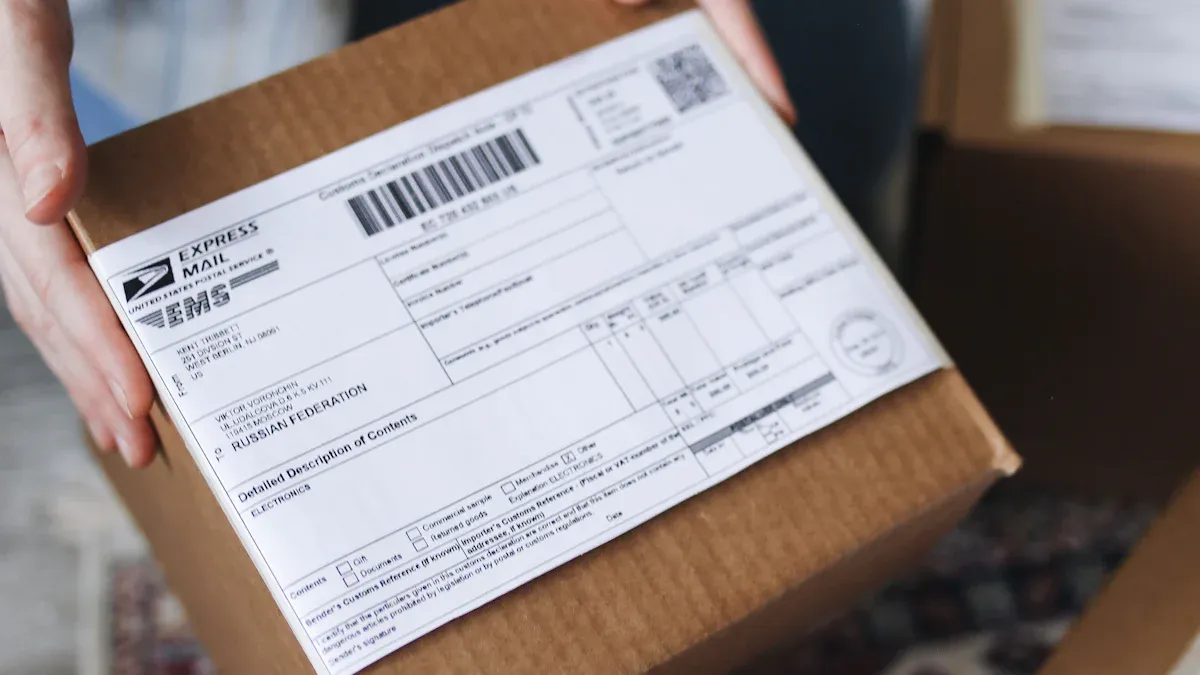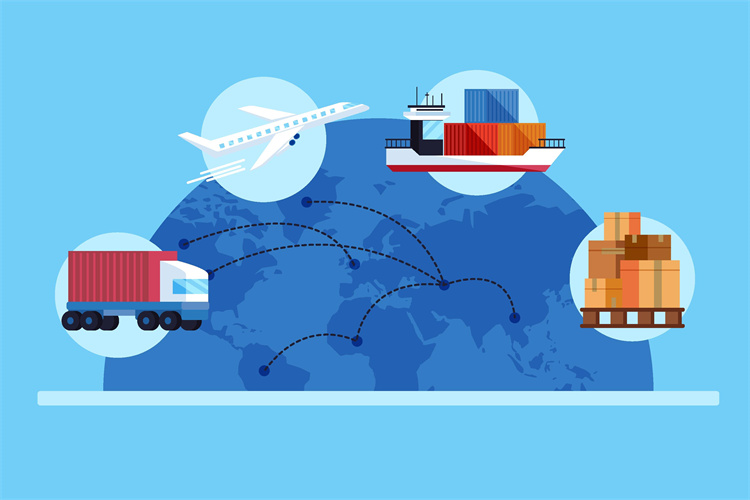Understanding the Key Aspect of U.S. Customs Clearance: The CBP Bond

A CBP bond acts like your ticket for U.S. Customs Clearance. You, the importer, promise to follow all rules and pay duties. CBP, the U.S. government agency, needs protection if something goes wrong. A surety company stands behind you, ready to pay if you do not. This three-party trust keeps trade safe and helps you build a strong business in America.
Key Takeaways
A CBP bond is essential for importing goods valued at $2,500 or more. It ensures compliance with U.S. customs rules and protects government revenue.
Choose between a Single Entry Bond for occasional shipments or a Continuous Bond for frequent imports. This decision can save you time and money.
JUSDA provides expert guidance throughout the bond process. Their support helps you avoid mistakes and ensures smooth customs clearance.
Monitoring your bond status is crucial. Insufficient coverage can lead to shipment delays and penalties, so stay proactive.
Using CBP bonds can speed up cargo movement and enhance flexibility in delivery. This helps keep your supply chain efficient.
CBP Bond Basics

Structure and Parties
When you import goods into the United States, you enter a contract that involves three main parties. Each party has a clear role. This structure helps keep U.S. Customs Clearance safe and reliable.
Party | Role |
|---|---|
Importer of Record (Principal) | You are responsible for following customs rules, keeping records, and paying all duties and taxes. |
US Customs and Border Protection (CBP) | CBP enforces customs laws and protects government interests. CBP uses bonds to make sure rules are followed. |
Surety Company | The surety company checks your financial strength. If you do not pay, the surety pays CBP and then collects from you. |
This contract creates a triangle of trust. You promise to follow the rules. CBP expects you to pay what you owe. The surety company stands behind you. This system makes U.S. Customs Clearance more secure.
Tip: JUSDA helps you understand each party’s role and guides you through the bond process. With JUSDA’s support, you can avoid mistakes and keep your supply chain moving.
The CBP bond also ensures accountability. Here is how it works:
Evidence Type | Description |
|---|---|
Financial Assurance | You must file a customs bond to show you will meet your obligations. |
Surety Liability | The surety company is responsible for paying CBP if you do not. |
Risk Management | Surety companies check your risk before issuing a bond. They make sure the bond amount covers possible problems. |
Purpose and Compliance
The CBP bond has two main purposes. First, it protects national revenue. Second, it makes sure you follow U.S. laws and regulations.
Customs bonds act as a financial guarantee. You promise to pay all duties, taxes, fines, and penalties. This protects the government’s money. If you do not pay, the surety company pays CBP. This system keeps U.S. Customs Clearance fair and safe.
CBP bonds also help you follow the rules. You must meet many compliance requirements, such as:
Operating a foreign trade zone
Transporting in-bond shipments
Sending goods for lab testing
Securing samples for intellectual property rights
CBP bonds make sure you:
Keep a good record of following CBP demands.
Declare the correct value and type of goods.
Allow CBP to supervise your shipments.
Note: Customs bonds help speed up the clearance process. CBP knows you have a bond, so they trust you to pay and follow the rules. This means your goods move faster and you avoid delays.
Customs bonds also stop illegal trade. They make it harder for people to break the rules. The bond system protects the government if someone tries to cheat or avoid paying.
JUSDA’s experts help you understand these requirements. They guide you through every step. With JUSDA, you can meet all compliance standards and keep your business running smoothly.
When Is a CBP Bond Needed?

U.S. Customs Clearance Requirements
You need a CBP bond when you import goods into the United States. The bond acts as a guarantee that you will follow all customs rules and pay any duties or fees. U.S. Customs Clearance rules set clear requirements for when a bond is mandatory.
Here are the most common situations where you must have a CBP bond:
You import commercial goods valued at $2,500 or more.
You bring in regulated items, such as pharmaceuticals or alcohol.
You use a bonded warehouse to store goods before paying duties.
You ship goods to a trade show using a Temporary Import Bond.
You transport goods that have not cleared U.S. Customs.
You operate as an international carrier moving goods into the U.S.
You import restricted or controlled items, like tobacco or chemicals.
You import frequently and choose a continuous customs bond.
Tip: If you are unsure about your bond needs, JUSDA in North America and JusTrade can help. Their experts review your shipments and guide you through every step of the customs process.
Scenarios and Thresholds
Regulatory thresholds decide when you must get a CBP bond. The most important threshold is the value of your goods. If your shipment is worth $2,500 or more, you must have a bond. Some goods need approval from other U.S. agencies, such as the FDA or EPA. These items require a bond no matter their value.
The table below shows key requirements that trigger the need for a CBP bond:
Requirement Description | Details |
|---|---|
Value of Goods | |
Regulated Items | Any value, bond required if regulated |
Importer Information | Legal business name, tax ID, contact info |
Shipment Details | Frequency, value, type of goods |
Bond Amount | Single entry: full shipment value plus duties; Continuous: minimum $50,000 |
Filing in ACE | Bond must be filed in the Automated Commercial Environment system |
JUSDA and JusTrade use advanced tools to check your shipments and make sure you meet all requirements. Their support helps you avoid delays and keeps your supply chain running smoothly.
Types of CBP Bonds
Single Entry Bond
A Single Entry Bond covers one shipment at a specific U.S. port. You use this bond when you import goods only a few times each year. This bond acts as a contract between you, CBP, and the surety company. It guarantees that you pay all duties, taxes, and fees for that shipment. If you import less than four times a year or ship low-cost goods, this bond fits your needs.
You buy a new bond for each shipment.
The bond expires after your goods clear customs.
This option works best for occasional importers.
Tip: If you rarely ship to the U.S., a single entry bond keeps things simple and cost-effective.
Continuous Bond
A Continuous Bond covers all your shipments for one year. You do not need to buy a new bond for every shipment. This bond helps you save time and money if you import often. You can use it at any U.S. port, and it renews automatically each year.
One bond covers unlimited shipments.
You avoid delays and extra paperwork.
This option is more efficient for frequent importers.
Note: Continuous bonds help you manage cash flow and keep your supply chain moving smoothly.
Choosing the Right Bond
You must choose the bond that matches your business model. If you ship goods only a few times a year, a single entry bond may be best. If you import regularly, a continuous bond saves you money and reduces hassle.
Factor | Continuous Bond | Single Entry Bond |
|---|---|---|
Frequency of Imports | Frequent shipments | Occasional shipments |
Cost | Lower for regular importers | Higher if used often |
Administrative Efficiency | Streamlined process | Simple for one-time shipments |
Long-Term Strategy | Supports business growth | Good for limited trade plans |
JUSDA’s experts help you review your shipping patterns and choose the right bond. Their advice ensures you stay compliant and avoid costly mistakes. With JUSDA, you can focus on growing your business while they handle the details.
Obtaining a CBP Bond
Process Overview
You can obtain a CBP bond by following a clear step-by-step process. This helps you meet all requirements for U.S. Customs Clearance and keeps your shipments moving without delays.
Complete an application at your port of entry or online. You will use CBP Form 301 and provide details about your goods and estimated duties.
Decide if you need a single entry bond or a continuous bond. Your choice depends on how often you import.
Submit your application to a surety company or a customs broker. They will review your information and offer a quote, usually within a few days.
Review the bond terms, sign the paperwork, and pay the bond premium.
The surety company files your bond with CBP. Once approved, you can start importing your goods.
Tip: JUSDA and JusTrade help you at every step. Their experts handle the paperwork, communicate with surety companies, and make sure your bond is filed correctly.
Documentation and Costs
You need to prepare certain documents and understand the costs before you apply for a CBP bond. The type of bond you choose affects both the paperwork and the price.
Bond Type | Documentation Required | Cost Structure |
|---|---|---|
International Carrier Bond | Year-end financial statement | |
Foreign Trade Zone Bond | Year-end financial statement | 1% of bond amount + 0.2% filing fee |
Airport Customs Security Area Bond | Year-end financial statement | 2.25% of bond amount + 0.2% filing fee |
In-Bond Export Consolidation Bond | Year-end financial statement | 2.25% of bond amount + 0.2% filing fee |
Import Customs Bond | Year-end financial statement | Starts at $349/year for $50,000 bond |
The cost of your bond depends on several factors:
Bond Type | Cost Calculation Description | Minimum Amount |
|---|---|---|
Single Entry Bond | $3–$5 per $1,000 of goods value plus duties, taxes, and fees | $100+ |
Continuous Bond | 10% of last year’s duties, taxes, and fees, rounded to nearest $10,000 | $50,000 |
Other factors can change your bond price. Your import history, financial strength, and the type of goods you ship all play a role. Surety companies look at these details to set your premium and approve your bond.
Note: JUSDA and JusTrade use digital tools to check your documents and help you find the best bond for your business. Their support makes the process faster and easier.
Risks and Consequences
Insufficient Bond Coverage
If your CBP bond does not cover your import activity, you face serious risks. Customs may decide your bond is not enough for several reasons:
Outstanding debts linked to your account
Failure to respond to bond increase requests
Invalid address or importer of record number
Missing or incomplete bond paperwork
Not depositing required cash-in-lieu of surety
When your bond is insufficient, you may see these consequences:
Shipments held at the port, causing delays
Extra costs from storage and demurrage fees
Penalties and the need to buy more expensive single transaction bonds
Warning notices from CBP, followed by immediate enforcement if you do not act
You must monitor your bond status and act quickly if you receive a notice. JUSDA helps you track your bond and avoid these costly problems.
Breach Penalties
Breaking the rules of your CBP bond can lead to heavy penalties. Customs sets clear fines for different violations. Here are some examples:
Condition | Penalty |
|---|---|
ACAS data violation | $5,000 per violation, up to $100,000 |
Failure to file export documents | $1,100 per day, up to $10,000 |
Customs security area compliance | $1,000 per default |
Unpaid processing fees | Two times the unpaid fees |
Unpaid passenger processing fees | Two times the required fees not collected |
You must follow all rules to avoid these penalties. JUSDA’s experts help you understand your obligations and keep your business safe.
AD/CVD and High-Risk Goods
Importing goods subject to anti-dumping (AD) or countervailing duties (CVD) brings extra risk. These cases often take years to resolve. Customs may increase your bond amount or require full cash collateral. You may also pay higher premiums and tie up working capital. If you import high-risk goods, you must plan for these challenges.
Proactive bond management protects your business. JUSDA uses digital tools and expert advice to help you avoid risks and keep your U.S. Customs Clearance process smooth.
CBP bonds play a key role in U.S. Customs Clearance and global trade. You gain flexibility and speed by using the in-bond system, as shown below:
Benefit | Example |
|---|---|
In-bond shipments speed up FDA and CBP checks | |
Flexible delivery | Choose the best port for your goods |
To reduce risk and stay compliant, you should:
Get binding rulings from CBP
Use technology to track your shipments
Keep strong records and monitor your brokers
JUSDA helps you manage these steps, making customs clearance smooth and secure.
FAQ
What is a CBP bond?
A CBP bond is a legal promise. You agree to follow U.S. customs rules and pay all duties. The bond protects the government if you do not meet your obligations.
When do you need a CBP bond?
You need a CBP bond when you import goods worth $2,500 or more. You also need one for regulated items, bonded warehouses, or frequent shipments.
How do you choose between a single entry bond and a continuous bond?
If you import only a few times a year, choose a single entry bond. If you import often, a continuous bond saves you money and time.
What happens if your bond amount is too low?
CBP may stop your shipments at the port. You could face delays, extra costs, and penalties. Always check your bond amount as your business grows.
How can JUSDA help with CBP bonds?
JUSDA guides you through every step. You get help with paperwork, bond selection, and compliance. Their experts use digital tools to keep your customs process smooth.
See Also
Achieving Success in International Trade Through JUSDA
The Definitive Guide to JUSDA's Supply Chain Excellence
Discovering JUSDA's Latest Warehousing Solutions for Efficiency
Enhancing Efficiency with JUSDA's Advanced Logistics Technology
Exploring Innovative Supplier Partnerships in Global E-commerce
